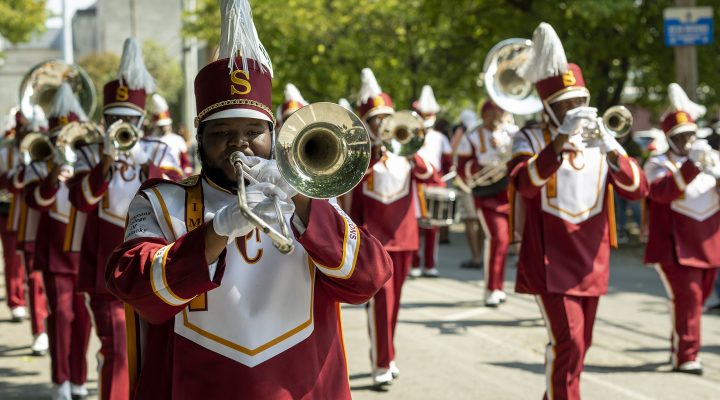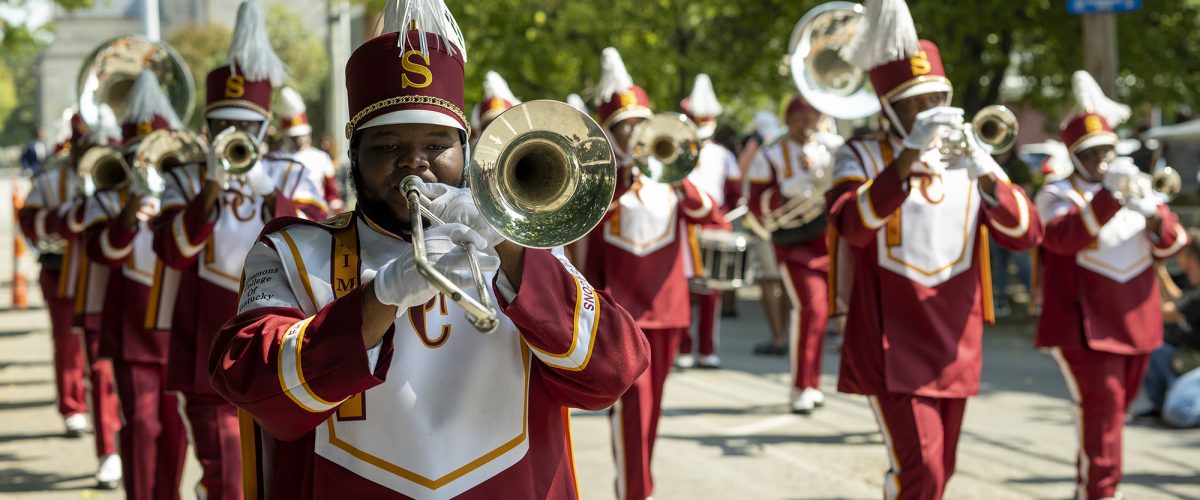Ida B. Wells Hall, a major addition to Simmons College of Kentucky, was dedicated Thursday, Sept. 15, during the annual meeting of the Louisville school’s partner denomination, the National Baptist Convention of America, International.
The three-story structure once housed Central High School, which was founded in 1873 as Central Colored School, Louisville’s first publicly funded school dedicated to the education of Black students. In addition to providing space for Simmons, a historically Black institution, Ida B. Wells Hall houses the headquarters of the NBCA, one of the nation’s largest predominantly Black denominations.
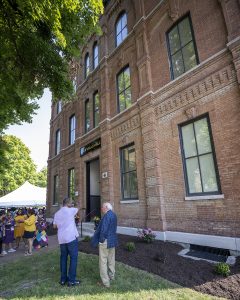
Ida B. Wells Hall
Until its purchase by Simmons earlier this year, the building was the home of Stewart & Associates, a Louisville marketing and design firm, which bought the building in the 1980s and performed major renovation and restoration work on the structure.
Speakers at the dedication, a celebratory event that included music by Simmons’ marching band, hailed education as the key to empowering the African American community.
“We are the only comeback college in American history,” said Kevin Cosby, president of Simmons. When Cosby assumed the presidency in 2005, the school was a struggling unaccredited Bible college. Cosby successfully led the school in its efforts to gain accreditation, expand its curricular offerings and gain recognition by the federal government as one of the nation’s 107 Historically Black Colleges and Universities.
Simmons, which was founded in 1879 by formerly enslaved people, eventually became a comprehensive institution, which included a law school and medical school. During the financial challenges of the Great Depression, its academic programs, except theological studies, were absorbed by Louisville Municipal College, a segregated branch of the University of Louisville.
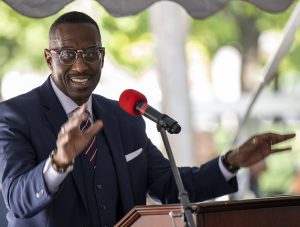
Kevin Cosby
Black people always have had a hunger for education, Cosby said. He noted African Americans moved from a 5% literacy rate at the close of the Civil War in 1865 to an 85% literacy rate over the next 50 years.
That surge in literacy represented the “highest increase of literacy of any people group in American history,” he said. “There was a hunger for education, and our kids still have a hunger for education.”
Samuel Tolbert, president of the NBCA, said after he was elected president in 2014, the 3.5-million-member denomination began to think about moving its headquarters from Dallas.
Nashville was the frontrunner for the NBCA’s new home until Cosby invited the denomination to consider Louisville, Tolbert said. “I saw his excitement and his heart, and I came to Kentucky and discovered the history of Simmons College of Kentucky, the comeback college in the United States.”
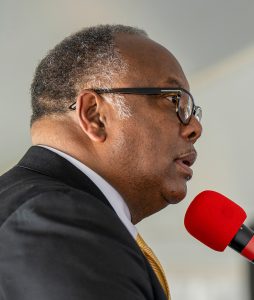
Samuel Tolbert
Tolbert’s recommendation set in motion a process that led the NBCA to vote unanimously to move its offices to Louisville. The NBCA made a $350,000 gift to Simmons in January toward the purchase of what is now Ida B. Wells Hall.
In addition, the denomination has purchased 57 acres a few miles from Simmons, where a retreat center is planned. It also made Baptist Seminary of Kentucky, which has offices and classrooms in Lexington and on the Simmons campus, its official seminary.
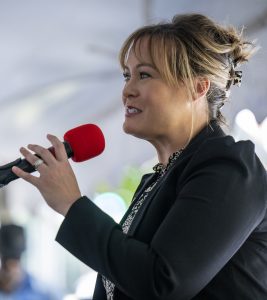
Jacqueline Coleman
Jacqueline Coleman, Kentucky’s lieutenant governor, praised Simmons’ efforts to prepare more Black teachers for the state’s classrooms. “All of our children are better prepared for the future when they are exposed to a diverse community of leaders and teachers,” said Coleman, a former public school teacher and assistant principal.
Coleman noted studies show Black students score higher on standardized tests and are more likely to continue their education beyond high school when they are taught by a Black teacher. “Black students who have just one Black teacher by third grade are 13% more likely to go to college, and Black students who have two or more Black teachers are 32% more likely to go to college.”

Aaron Thompson
Aaron Thompson, president of the Kentucky Council on Post-Secondary Education, said Simmons’ influence is needed in Louisville and beyond. “I will tell you as the head of higher education, Simmons is needed, yes as an HBCU, yes as a way to serve West Louisville,” he declared. “We need Simmons in this state, though, we need Simmons in this nation. … You’ve got a role to play, and that role is far bigger than anything your president or I could even think about.”
Wells, for whom the newly dedicated building was named, was a journalist and early civil rights leader. Simmons College’s namesake and second president, William Simmons, gave her a job as a writer for the American Baptist Newspaper and served as her mentor.
Related articles:
CBF inks partnership with African-American denomination
Kentucky seminary receives nearly $1 million grant from Lilly for education innovation

